Soaking in Hot Springs: Ancient Chinese Health-Care Secret
Do you like soaking in hot springs? In China, soaking in hot springs is an ancient and pleasant Chinese way of maintaining health. In the serene hot spring environment, with steaming heat all around, it feels like being in a fairyland, where people can fully relax themselves. Among this, there are also many Chinese health-care viewpoints and experiences. This article will share them with you!
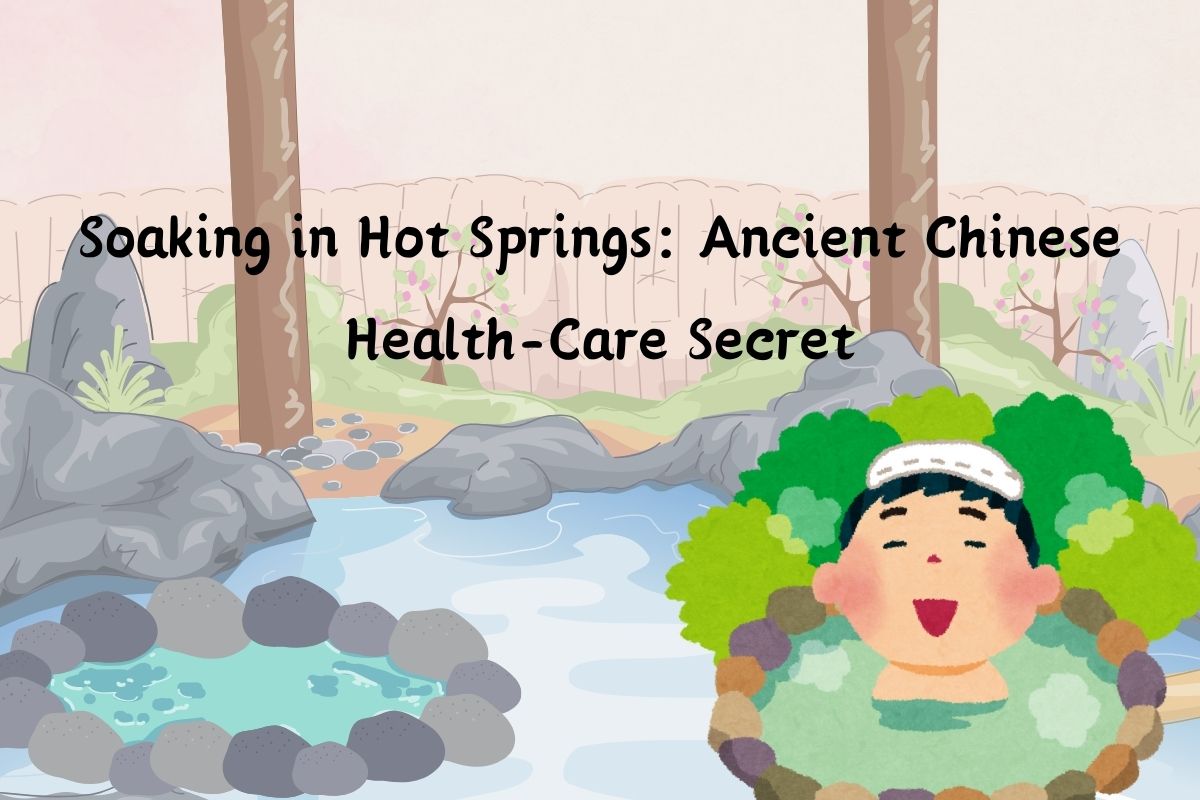
The Magical Hot Spring Water
As early as in ancient times, hot springs泉水(quán shuǐ) were regarded as a godsend health-care treasure. In ancient records, emperors, generals and ministers often regarded hot springs as places for convalescence. They were well aware of the wonderful effects of the energy contained in hot spring water on the body. Hot spring water mostly originates from deep underground and is rich in various minerals and trace elements beneficial to the human body, such as calcium, magnesium, sulfur, etc. These components, after coming into contact with the human skin, can penetrate into the body through the pores, just like nourishing liquids tailored by nature for us.
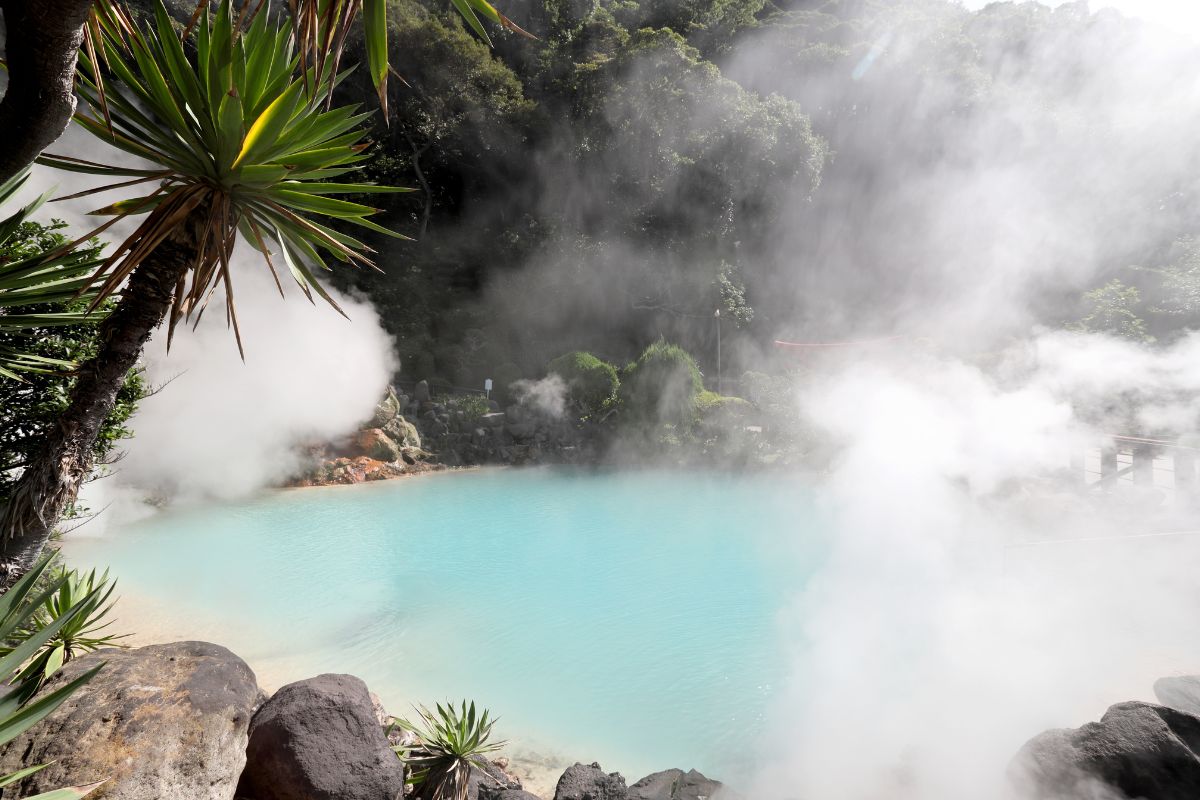
泉水 (quán shuǐ), noun, spring
Examples:
- The spring is very clear.
这泉水很清澈。
zhè quán shuǐ hěn qīng chè 。 - We get fresh water from the spring.
我们从泉水中获取新鲜的水。
wǒ men cóng quán shuǐ zhōng huò qǔ xīn xiān de shuǐ 。
From the perspective of traditional Chinese medicine, winter is like a magical treasure trove of nature, a season for all things to be stored. During this special period, the human body, as if following the mysterious rhythm between heaven and earth, stores its yang qi internally, just like a river that slows its flow in winter and converges in the depth.
The warm nature of hot springs is like a magical key that can ingeniously open the door for the operation of qi and blood in the human body. Under the effect of the warm power, qi and blood begin to flow smoothly in the complex and precise network of meridians. When the qi and blood flow freely, each organ in the body can receive better and more sufficient nourishment.
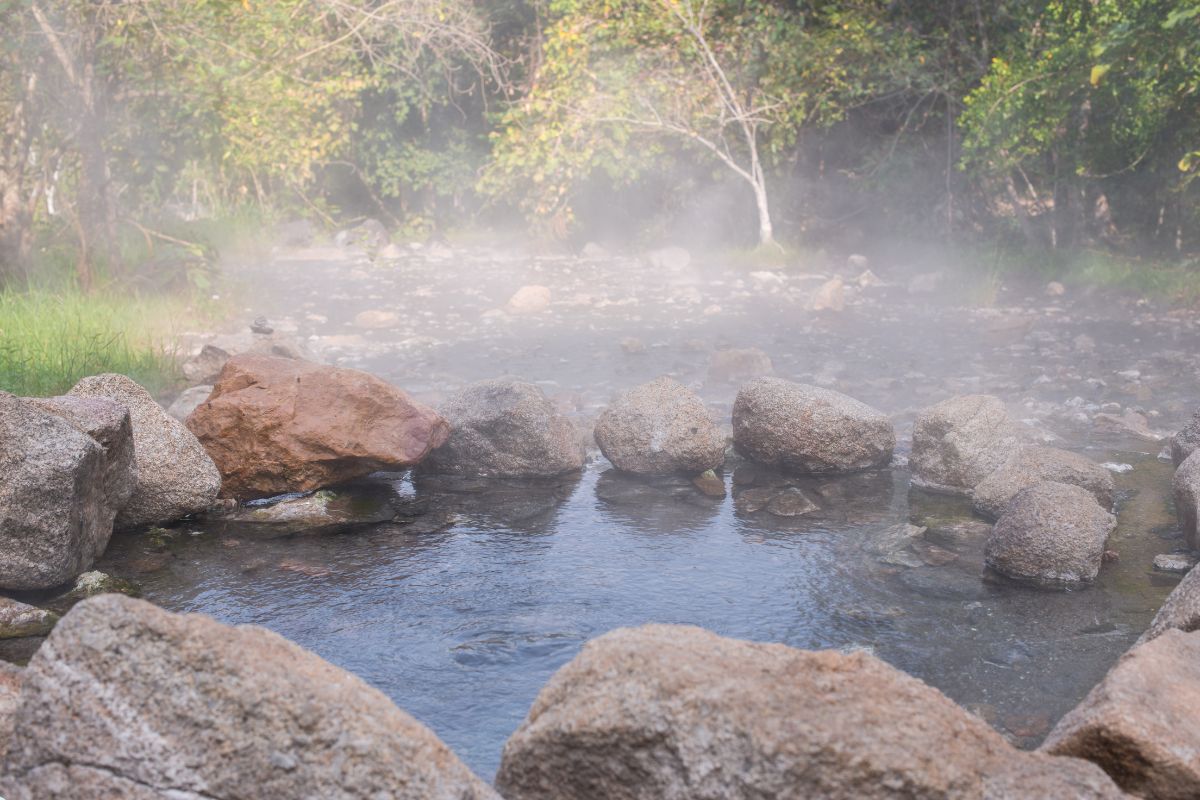
While the warm spring water stimulates the meridians, it can also enrich the qi and blood of the heart meridian. The heart meridian is like an important passage running through the emotional and spiritual world of the human body. When the qi and blood are sufficient, problems such as restlessness and insomnia caused by poor qi and blood circulation can be effectively alleviated. The restless mood will gradually dissipate, and people can fall asleep peacefully in warmth and tranquility at night, no longer tortured by insomnia.
For those with a cold and deficient spleen and stomach, the warm温暖的(wēn nuǎn de) power of hot springs is like a warm and beneficial medicine. The spleen and stomach are located in the middle energizer of the human body and are the core hubs of the human digestive system. A cold and deficient spleen and stomach is like a stove lacking fuel in a cold winter, with weakened transportation and transformation functions, thus leading to conditions such as loss of appetite and indigestion. The warmth of hot springs can appropriately warm the middle energizer of the spleen and stomach, adding "fuel" to this "stove" and enhancing the transportation and transformation functions of the spleen and stomach. In this way, the appetite will gradually recover and the body will regain its healthy vitality.
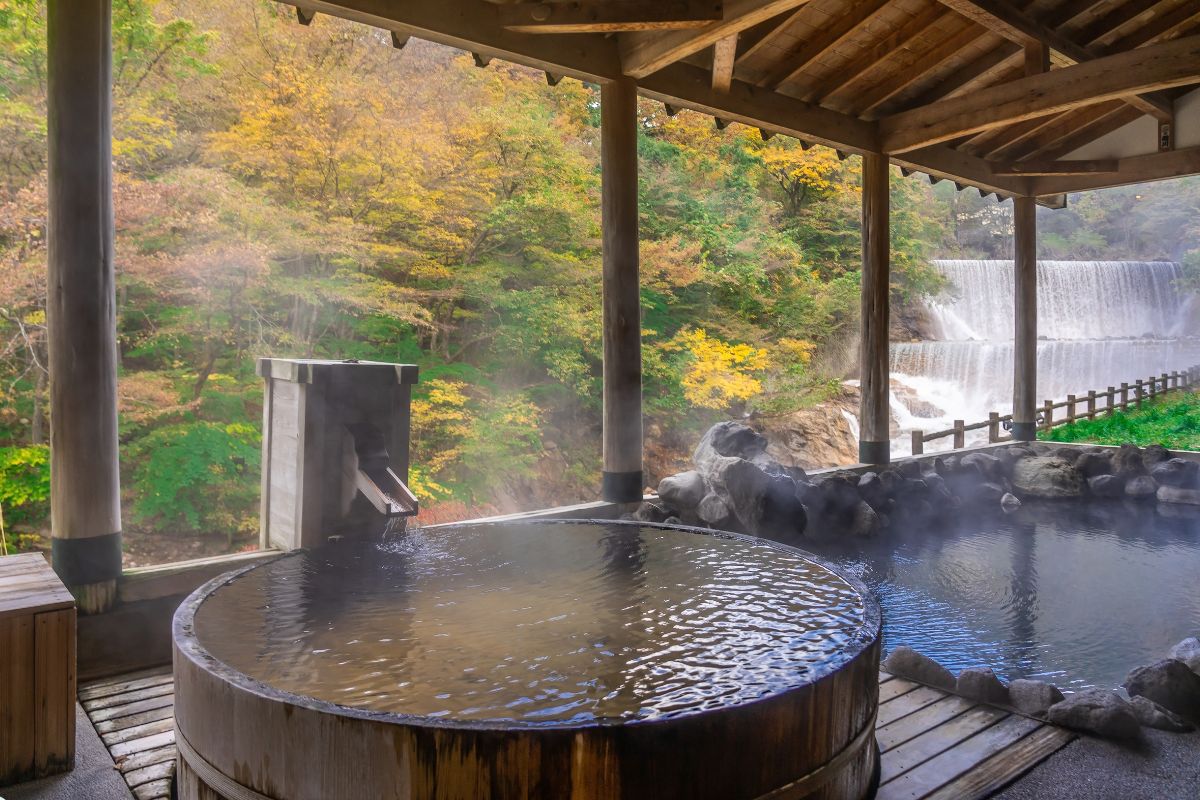
温暖的 (wēn nuǎn de), adjective, warm
Examples:
- The warm sun shone on us.
温暖的阳光照在我们身上。
wēn nuǎn de yáng guāng zhào zài wǒ men shēn shàng 。 - She has a warm smile.
她有温暖的笑容。
tā yǒu wēn nuǎn de xiào róng 。
Warm Tips
Before soaking in hot springs, moderate warm-up activities are an indispensable link. You can do some simple and easy activities by the hot spring pool first, such as rotating your ankles and wrists, stretching your arms and legs, to fully mobilize the joints of your limbs. Such warm-up activities can make the body slightly warm, gradually accelerate the blood circulation of the body, and adjust the muscles from a relatively relaxed state to a more vigorous state.
In this way, when we enter the hot spring pool, we can effectively avoid the discomfort brought to the body due to the excessive temperature difference between the water temperature and the outside temperature.
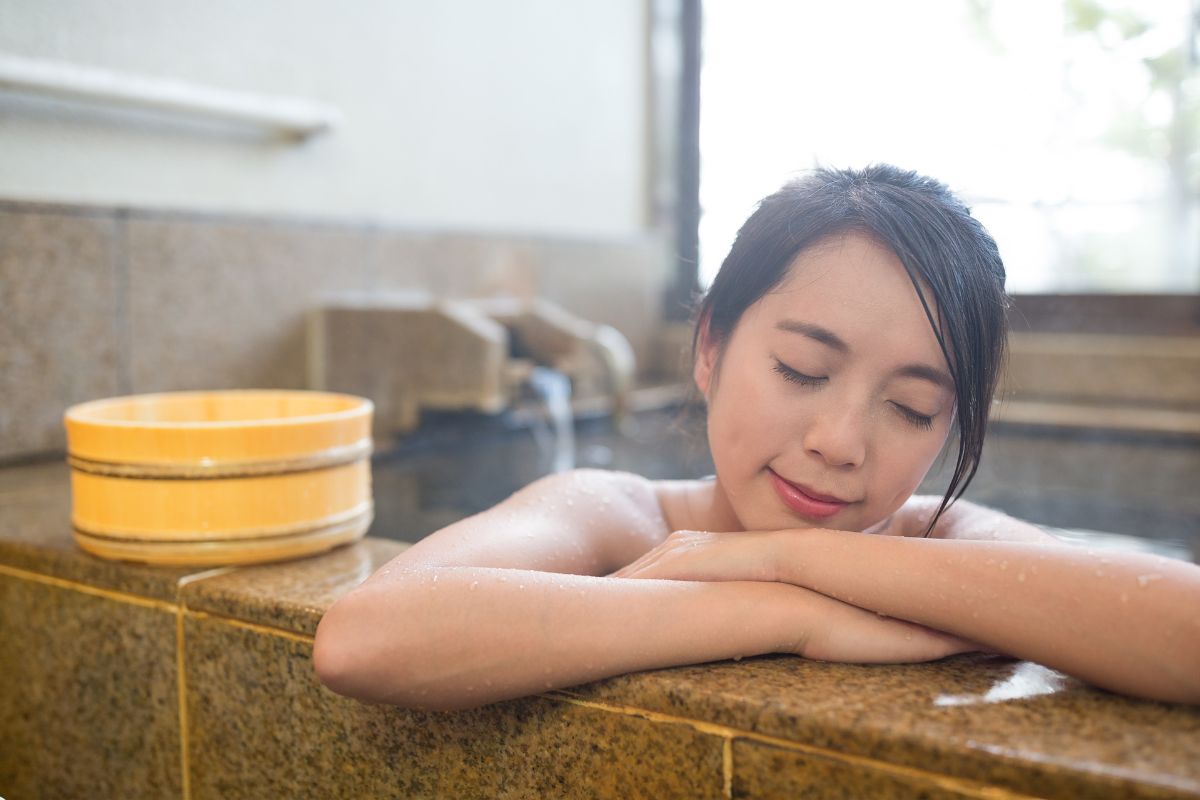
The duration of soaking in hot springs also has strict requirements. It's not that the longer you soak, the better. Generally, it is more appropriate to keep the duration of each soak in hot springs at about 15 - 20 minutes. This is because the water temperature of hot springs is relatively high. Soaking in it for a long time will unconsciously affect the human body. If the soaking time is too long, the body will sweat a lot, resulting in water loss.
At the same time, when the body is in a warm environment for a long time, the energy consumption will also increase, which can easily make people feel overly fatigued. Therefore, after soaking for a period of time, one should come ashore and take a short break. During the break, it is crucial to replenish water in time, which is like watering dry land to replenish the "source of life" lost by the body.
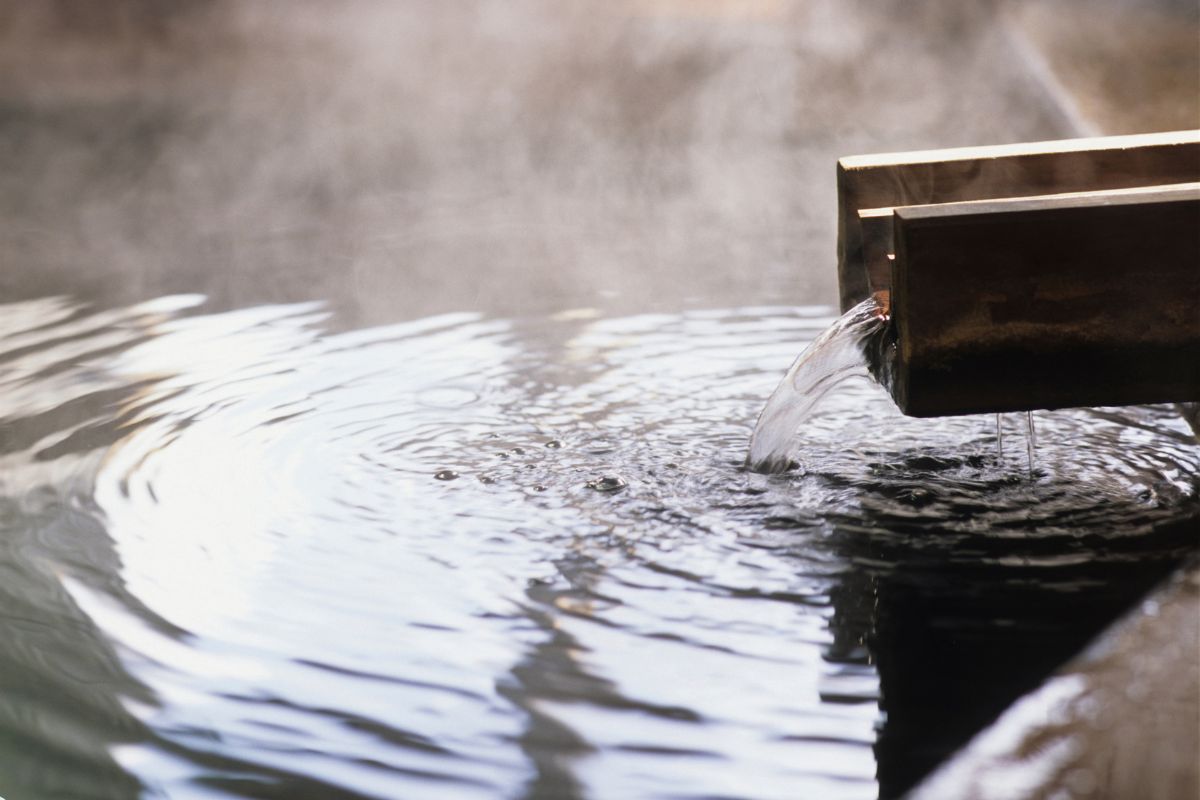
After soaking in hot springs, pay more attention to protecting the body. Do not blow the wind or enter a cold environment immediately. At this time, the body is like a flower blooming in a greenhouse and needs a process of gradually adapting to the external environment. You can stay in a warm and comfortable room for a while to let the body slowly adapt to the temperature change. This adaptation process is an important link to ensure the health-care effect of hot springs and cannot be ignored.